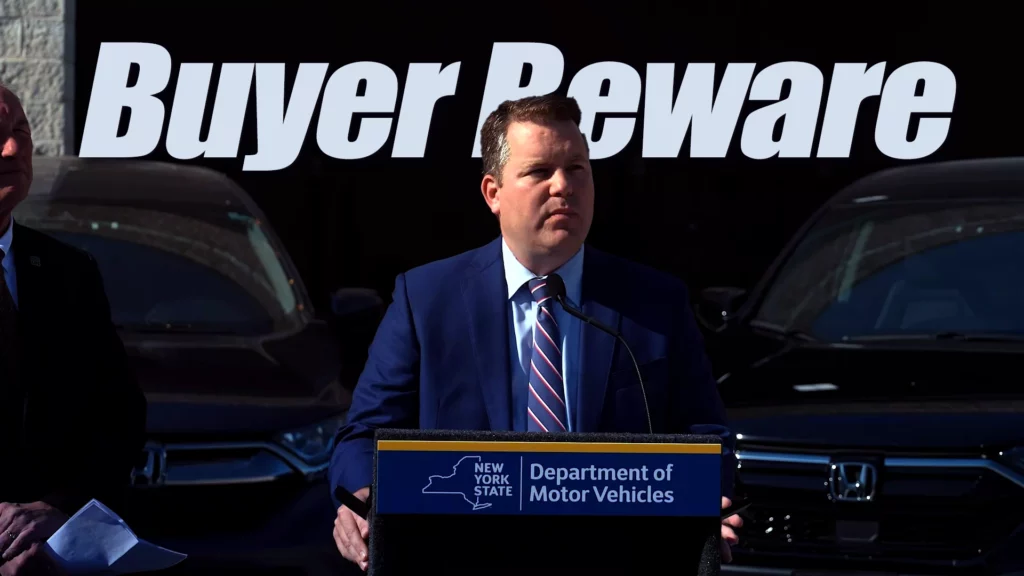- The NY DMV urges online car buyers to verify the vehicle’s history to avoid falling victim to scams.
- Many stolen cars end up on Facebook Marketplace, with the DMV advising buyers to verify VINs.
- The department is now providing guidance to help prospective buyers prevent potential fraud.
Stolen vehicles are a huge problem across the world. Typically, they tend to affect two major victims, the person who had their car stolen, and an unsuspecting person who might buy that stolen car. Now, the NY DMV is offering some guidance on how to avoid becoming the latter.
According to authorities, the state has recovered 228 stolen cars this year and they found over half (149) online available for sale. In fact, they were discovered only after a victim bought the car and tried to register it. “There are many scammers out there waiting to take advantage of someone who needs a low-cost vehicle,” said DMV Commissioner Mark J.F. Schroeder.
Read: From BMWs To Rolls-Royces, Four Men Accused Of Stealing 120 Luxury Cars And Bikes
Most of these cars end up for sale on sites like Facebook Marketplace and Craigslist. “Car buyers need to be aware that there are dishonest sellers online who won’t think twice about scamming them out of thousands of dollars. We urge those who are looking to buy online to carefully research their purchase to ensure they are not victimized,” said State Police Superintendent Steven G. James.
NYPD Interim Commissioner Thomas Donion furthered that sentiment: “The NYPD’s message is clear: Before completing an online transaction, verify the credentials of the other party, thoroughly research the vehicle’s history, avoid carrying cash, and insist on meeting at a designated and signposted e-commerce exchange location that is public and safe. This includes sites that are under 24-hour video surveillance at each of the NYPD’s 77 police precincts.”
To that end, the DMV did provide a series of useful suggestions that we can all use regardless of where we might live in the U.S. They include verifying online on a third-party VIN history checker that the vehicle isn’t reported as stolen, verifying that the seller’s identification matches the information on the vehicle title, and confirming that the VIN on the car matches that of the title.
In addition, prospective buyers should use a cashier’s check made out to the seller instead of cash. That could prevent the seller from actually cashing it and ultimately, the money would go back into the buyer’s account given enough time. On top of that, the NY DMV has a handy website specifically to help buyers be aware of what to look out for, how above-board dealers should behave, and how to choose a vehicle.
The DMV recommends buyers take these steps to help prevent being scammed:
- Make sure the seller has a title in their name with a lien release if applicable. Ask to see identification.
- Always make sure the vehicle identification number (VIN) plaque on the vehicle matches the VIN on the title.
- Check the VIN online
- to see if it has been reported stolen.
- Check the odometer reading online. It won’t be a precise match but if the mileage goes down on the vehicle compared to the records, that’s a red flag.
- If possible, the purchaser should use a cashier’s check made out to the seller in lieu of cash.
- Be wary of individuals claiming to be licensed dealers who do not have a place of business or who are using out-of-state dealer paperwork, an out-of-state dealer plate, or out-of-state registration plate.
- Do not utilize a temporary registration certificate or plate unless it is issued by the New York DMV or a licensed DMV facility.




